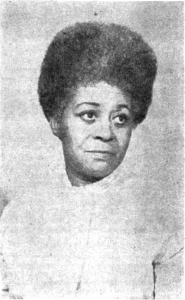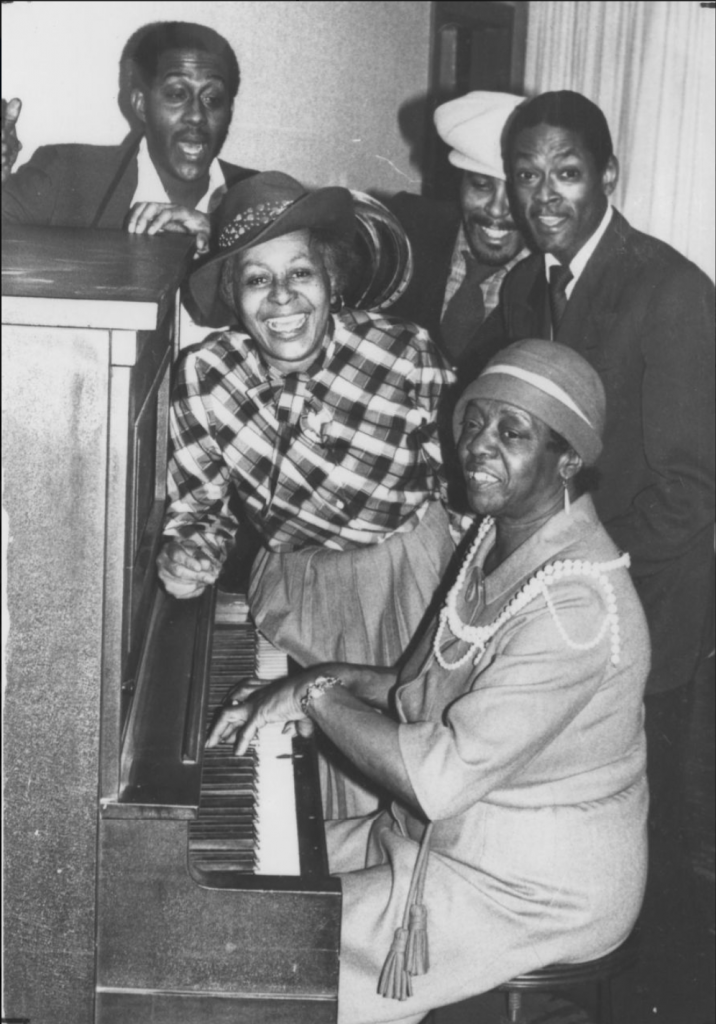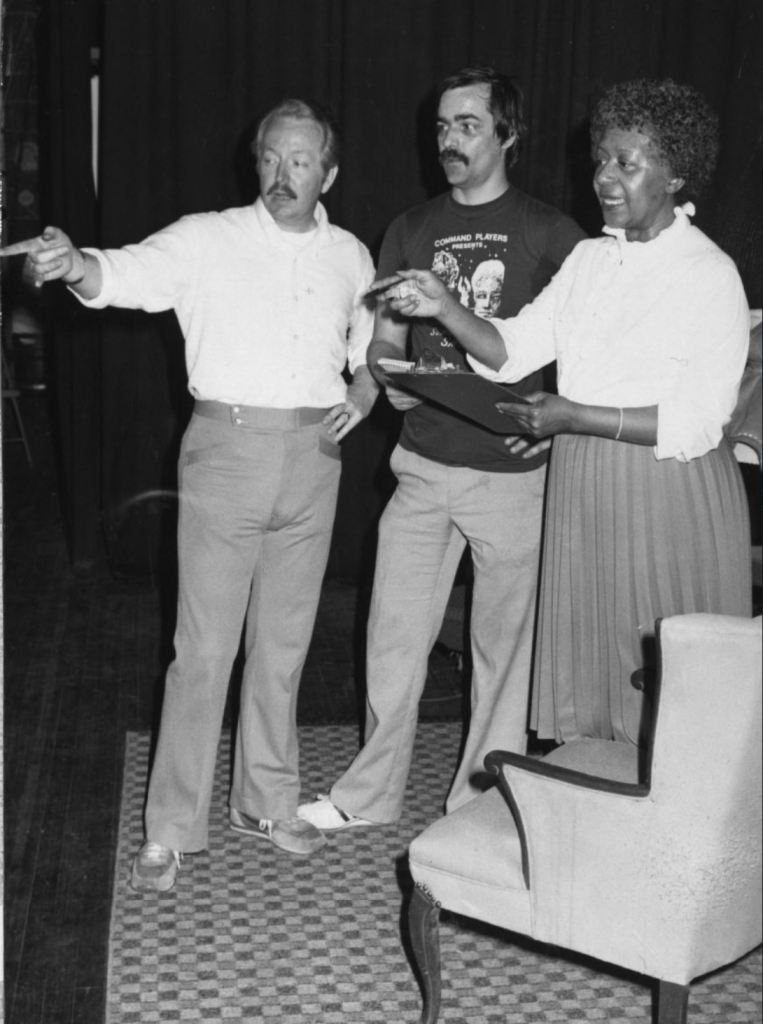
Photo info ...
Credit: Indianapolis NewsView Source
(May 16, 1928-Nov. 2, 2014). Born in Philadelphia, Pennsylvania, to James and Elizabeth Maddox Green, Helen Whitelowe attended public schools and graduated from Downington Industrial and Agricultural School, established in 1905 for African Americans in Chester County, Pennsylvania. She then attended Bennett College, a private historically Black college for women in Greensboro, North Carolina. While majoring in sociology and psychology, she also acted in collegiate theater productions.

Following graduation from Bennet College, she became a civil servant for the U.S. Department of Housing and Urban Development and then the U.S. Army Finance Center, (see ) located at , in Indianapolis. She worked at the Finance Center until the time of her retirement. In 1965, she married William Whitelowe. The couple had two children and later divorced.
Looking for an opportunity to use her theatrical talents at a time when few existed for African Americans, she became acquainted with Mose Laderson, a young African American pastor at Hillside Christian Church on the city’s east side. In 1953, he founded the acting troupe, New World Players, in connection with his ministry. Whitelowe joined the troupe, which became the Laderson Players and then the Hillside Cultural Group. With Hillside, she performed in venues as diverse as community centers, schools, churches, hospitals, and even prisons during the mid-1960s.
Later, Whitelowe joined the Southport Players, a drama group organized at Southport Christian Church in 1966 “to perform only dramas . . . which deal with needs of men and their relationship to each other and to God.” In 1968, Whitelowe acted in the company’s production of In White America. The play, drawn from historical records, portrays several different scenes from Black history. First presented in New York City in 1963, the Southport Players toured the play throughout Indiana and to Joplin, Missouri.
In 1970, Whitelowe met John Gibson. He created a 15-minute dramatic radio program called Soul People that and affiliate station KVIL in Dallas broadcast on Sunday mornings. Whitelowe starred as “Miss Becky” on the show, which had a 2-year run.
Whitelowe encouraged some of the cast of Soul People to join her when she founded the in 1974. It was one of the first African American theater companies in Indianapolis. Serving as the company’s director, she made theater more accessible to the African American community, introducing her actors and audiences to traditional, contemporary, and classical plays. initially served as its home theater, but the company performed at various venues, including Command Playhouse at Fort Benjamin Harrison, , Hedback Community Theatre, the , and the Lilly Theatre at .
Whitelowe, however, constantly struggled to find rehearsal venues for her theater company. Fundraising efforts fell flat, which forced Soul People to rehearse in Whitelowe’s home or at the , a community center that began in 1898 as an African American branch of a white settlement house.

During brief hiatuses as a theater director, Whitelowe continued her acting, notably in poet creation, River of My Song, which premiered at the Children’s Museum under Evans’ direction in 1977. By 1983, Whitelowe left Soul People amid disagreements with its board of directors. She, however, remained as director emeritus and acted with the company periodically.
Whitelowe found new opportunities at , a community theater company that resides at the Hedback Theatre. She continued to nurture Black theater with this group of community actors. Mayor recognized her 30 years with community theater in Indianapolis by marking June 24, 1983, as Helen Whitelowe Day.
Though less active, Whitelowe continued acting in the last decades of her life. She headed the cast of Steal Away in 1988. Later, in 1991, she worked with Soul Company to star in Boochie, a one-woman theater piece by Mari Evans, at the Walker Theater. Famed jazz musician wrote the original score for the production that premiered in New York City in 1985. One of her last performances was at in 2003. Whitelowe performed in The Onliest One Alive, a play about the tragedy in Jonestown, Guyana.
Although best known for being a pioneer in the African American theater community in Indianapolis, Whitelowe appeared on local television and in commercials. She also occasionally obtained commercial and film roles.

Help improve this entry
Contribute information, offer corrections, suggest images.
You can also recommend new entries related to this topic.